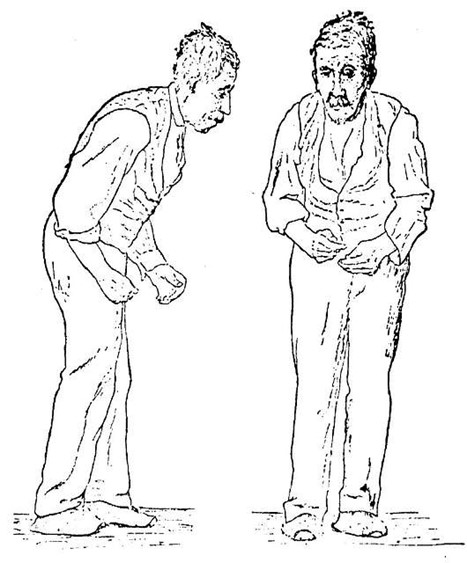Eat Less, Live Longer? The Surprising Truth About Weight Loss and Longevity
The idea that eating less can help you live longer is an intriguing concept that has gained traction over the years, largely through the popularity of calorie restriction and fasting trends. But what does science really say about the connection between weight loss and longevity? Can trimming down actually add years to your life, or is the relationship more complex than it seems?
The Calorie Restriction Connection
Research on animals, particularly rodents and primates, has shown that reducing calorie intake without malnutrition can extend lifespan. These studies suggest that when animals consume fewer calories, their bodies undergo various beneficial processes, such as:
- reduced oxidative stress
- enhanced DNA repair
- increased insulin sensitivity
all of which contribute to longevity.
In humans, some studies have found that calorie restriction or intermittent fasting may lead to similar biological changes. Reduced calorie intake has been linked to:
- lower levels of inflammation
- improved cardiovascular function
- decrease in risk factors for chronic diseases, such as diabetes and heart disease.
But, does eating less mean we’ll live longer?
Weight Loss: More Than Just Cutting Calories
While calorie restriction shows promise in certain studies, weight loss and longevity are influenced by more than just how much food you eat. Factors such as metabolic health, nutrient quality, and genetics play crucial roles in determining lifespan.
- Metabolic Health: A key component of long-term health is maintaining a healthy metabolism. Excess weight, particularly visceral fat (the fat surrounding your organs), is associated with metabolic conditions like:
- insulin resistance
- type 2 diabetes
- cardiovascular disease
Losing weight, especially belly fat, can significantly improve metabolic markers and reduce the risk of these diseases, which are known to shorten lifespan.
- Nutrient Density: Simply eating less isn’t enough. You must prioritize nutrient-rich foods like vegetables, fruits, lean proteins, and healthy fats to ensure your body gets the essential vitamins and minerals it needs to function properly. A nutrient-poor, calorie-restricted diet could lead to deficiencies that may negatively impact longevity, particularly by impairing immune function or muscle mass preservation as you age.
- Genetics: While lifestyle choices such as diet and exercise play a significant role, genetics also contribute to longevity. Some people are genetically predisposed to live longer regardless of their diet. However, eating a well-balanced diet can help optimize the expression of genes related to health and longevity.
The Role of Fasting and Weight Loss in Aging
One of the more exciting areas of research connecting weight loss and longevity revolves around fasting, particularly intermittent fasting and time-restricted eating. These approaches involve cycling between periods of eating and fasting, which may help:
- promote cellular repair mechanisms
- reduce inflammation
- enhance fat metabolism
Studies suggest that fasting can lower insulin levels, increase the production of brain-protecting molecules, and reduce markers of aging like oxidative stress.
Additionally, fasting can aid in weight loss by reducing total calorie intake and stimulating fat burning, which could, in turn, lower the risk of obesity-related diseases. However, it’s important to note that fasting isn’t a magic bullet, and over-restriction can lead to negative health outcomes, such as nutrient deficiencies and muscle loss.
Does Less Always Mean More?
While reducing calorie intake may have potential health benefits, extreme calorie restriction over long periods can backfire. Chronic under-eating can lead to:
- malnutrition
- weakened immune function
- bone density loss
- muscle atrophy
particularly in older adults. Furthermore, overly aggressive weight loss tactics can cause imbalances in hormone levels, including leptin and ghrelin, which regulate hunger and satiety.
Thus, sustainable weight loss—paired with adequate nutrient intake—is essential for supporting long-term health and longevity. Instead of focusing solely on eating less, a balanced approach that emphasizes whole foods, regular exercise, and a healthy mindset toward eating may be the best way to increase lifespan and promote a higher quality of life.
To learn more, check out this summary from Medical News Today.
The relationship between weight loss and longevity is nuanced. While eating less, particularly through calorie restriction or fasting, has shown some potential to extend lifespan by reducing the risk of chronic diseases and enhancing metabolic health, it’s important to do so in a healthy, sustainable way. Prioritizing nutrient-dense foods, maintaining muscle mass, and finding balance in your eating habits will support long-term vitality.
For individuals seeking to shed unwanted belly fat, consider incorporating the AMPK Metabolic Activator supplement from Asher Longevity Institute into your regimen. This powerful supplement is designed to stimulate the body to efficiently burn stored abdominal fat, while also supporting overall cellular metabolism for a healthier and more balanced lifestyle.




